精品推荐:揭秘稀有钱币的珍贵价值
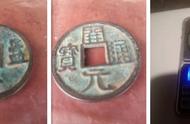
开元通宝为唐代货币,钱币在唐代始有“通宝”。唐初沿用隋五铢,轻小淆杂。唐高祖武德四年(621年),为整治混乱的币制,废隋钱,效仿西汉五铢的严格规范,开铸“开元通宝”,取代社会上遗存的五铢。
《旧唐书·食货志》记载:“(唐)高祖即位,仍用隋之五铢钱。武德四年(621)七月,废五铢钱,行开元通宝钱,径八分,重二铢四絫,积十文重一两,一千文重六斤四两。”钱文由书法家欧阳询书写,面文“开元通寳”,形制仍沿用秦方孔圆钱
开元通宝

“开元通宝”钱币正面印刻着“开元通宝”四字,字迹清晰,苍劲有力。观其铸体,铸制规整,边圆廓正,坦平地章,穿缘廓干净,优良铸工,更显字廓深竣挺拔,精整有加。品赏其钱文,可开元通宝之特有字体端美亮眼,十分耐赏!钱币正反面氧化一致,有明显的绿锈包浆,为开门到代真品古币,存世稀有,具有极高的收藏价值。

开元通宝为我中华盛世之古币,当时唐朝占全球百分之八十的GDP,在国际上享有天国之称号,在国际上的经济地位,可以说是一国独大,所以有外国友人还会称呼我们为唐人,在国外也有唐人街,开元见证着我国的繁荣,它也是十分精美规范的古钱币,铸工比元明清更为精美,可见千年之前我国的冶炼技术已经非常的发达,这枚无磕无残,包浆自然开门,是一枚具有极大收藏潜力的古币。
大中通宝是中国古代钱币之一,元末起义军领袖朱元璋称吴王时所铸。元至正二十一年(1361年),朱元璋在应天府(今南京市)设宝源局铸“大中通宝”钱,以四文为一钱、四十文为一两、四百文为一贯。大中通宝,钱凡五等:小平、折二、折三、折五、折十,各等钱均有光背、背字两种。大中通宝背字记京城及各行省简称。当十钱除记地外,注明“十”字,表“当十”之意。“京”字当十钱较各行省当十钱微大。 此钱铸造较为精美,并有一定的存世量,当属热门品种,有不错的市场价值和升值空间。
大中通宝

明初期货币大中通宝的来历具有相当文化价值。确切而言,大中通宝是在元末反元斗争中产生的,是反抗元统治秩序的手段之一。元末社会动乱,纸币支持的经济体系严重破坏,元境内各地先后恢复了铜钱的流通。六支反元军事集团先后发行了自己的铜币,如韩林儿的“龙凤通宝”钱,张士诚的“天佑通宝”钱,明玉珍的“天统通宝”钱,以及朱元璋“大中通宝”钱。六支钱币中,也唯有“大中通宝”取得成功。战争期间,朱元璋是韩林儿的部下,他采用谋略,一方面协助韩林儿发行“龙凤通宝”,另一方面笼络民心,在战争期间答应老百姓继续使用元代交钞,规定交钞一两值作“龙凤通宝”四十文使用,十两交钞作一贯使用,作为补充。他还在应天府设置宝源局,开始铸造“大中通宝”,与其它货币一起参与流通。直到至元二十四年始大规模发行。

1368年朱元璋建立明朝之后,改元洪武,铸行“洪武通宝”,“大中”钱遂即停造。 图3 中“大中通宝”币身略薄。币有穿部,内外部均匀,正面书有“大中通宝”四字,布局疏朗,“通”字为单通。币背上穿铸有一“十”字。大中钱分五种,有小平、折二、折三、折五和折十,且除宝源、宝泉两局外,朱元璋还陆续发行带有地名的货币,如鄂、京、浙、广等简称,铸于铜币背面,因之形成了多种等级的大中铜币系列。 “大中通宝”背十钱为了昭示朱元璋的丰功伟绩,只象征性发行,传世极少。物稀则贵,具有极高收藏价值。
光绪元宝是清朝光绪年间流通的货币之一。由湖北两广总督张之洞率先引进英国铸币机器铸造银元和铜元,之后各省纷纷仿效。共有十九个省局铸造,除中央户部,地方省所铸铜元,皆在其正面上缘镌写省名。计有:1户部;2北洋;12湖北;7江南;15河南; 11湖南;14江西;9山东;8广东;5清江;6浙江;13四川; 10福建;17安徽;3吉林;4奉天;18广西;19新疆;20黑龙江。
北洋造光绪元宝北洋龙洋在中国近代机器铸币史上属一个大系列,其铸期历时甚长(从光绪22年—光绪34年[1896至1908年]),历经十余载,币模几经更替,即使同一铸造年份亦往往由于修模、币材、工艺技术、工厂管理等诸多因素,造成版别异常繁杂。
北洋政府(1912年~1928年)是指中华民国前期以袁世凯为首的晚清北洋军阀在政治格局中占主导地位的中国中央政府,于1913年10月6日袁世凯当选中华民国首任正式大总统后形成。
北洋政府是中国历史上第一个以和平的方式完整继承前朝疆域的政权,也是中国继清朝灭亡后第一个被国际承认的中国政府。
经“庚子”之乱后,在督造官吏“李鸿章,王文韶,周学熙,荣禄”等重臣上奏朝廷后,“北洋机器局”又得以获准继续铸造钱币权。后“北洋机器局”更名为(北洋铸造银元总局),其后所铸钱币都镌为“北洋造”。
北洋29年造光绪元宝
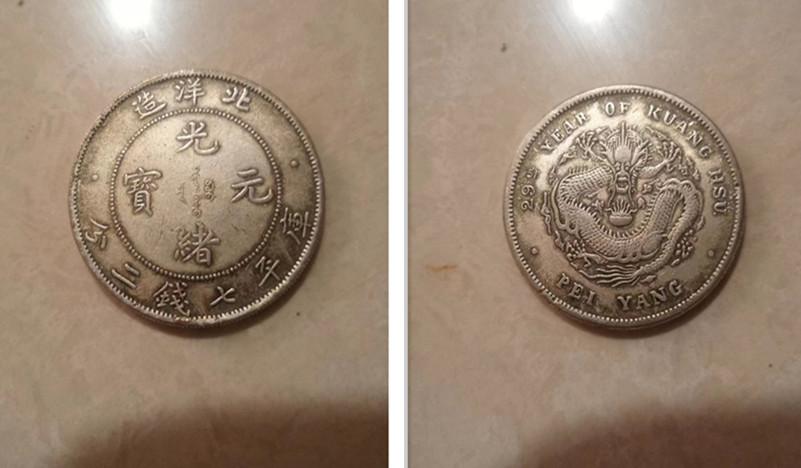
此枚为长尾龙,长云版. 此币雕模深峻,架构平衡,书法流畅。银币正面珠圈内镌汉文“光绪元宝”四字;珠圈外上缘环镌满文(光绪元宝)四字,下缘环镌“库平七钱二分”六字;左右分别镌铸“北·洋”二字。二字上方各镌一圆点。币背面中镌一“坐龙图”,“龙图”四周环镌“祥云纹”;上下缘环镌英文及阿拉伯数字“29RD YEAR OF KUANG HSü PEI YANG,(中译为:北洋·光绪第29年)”。下缘英文“PEI YANG(北洋)”左右上两側各镌一圆点。
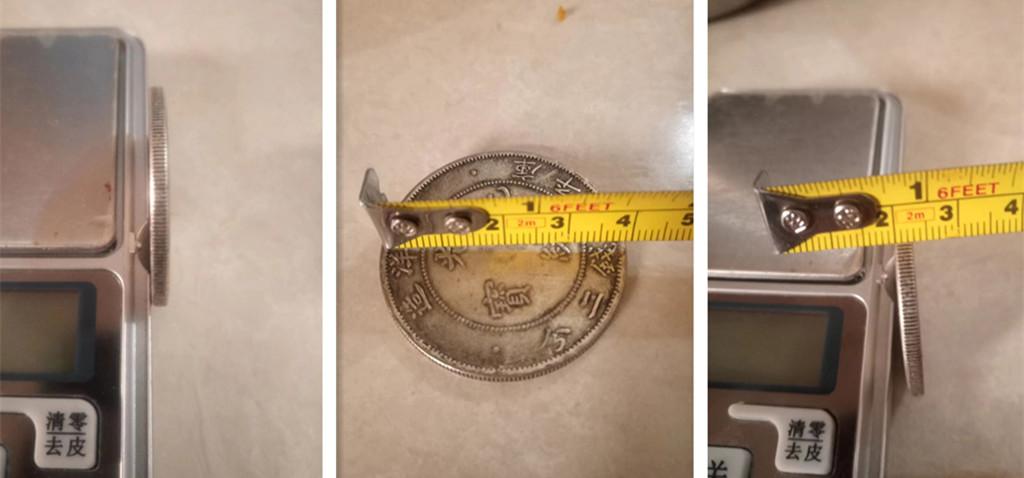
北洋造库平七钱二分,品相精美,包浆圆润,锈色古旧,古朴典雅,历史遗留痕迹鲜明,历史过渡性自然,极具艺术价值和历史价值。钱币正面珠圈内铸满汉文“光绪元宝”字样,上环书“北洋造”,下环铸“库平七钱二分”,钱文清晰,字体端庄俊美,笔画遒劲有力,圆润饱满,书法艺术价值极高。
这枚银币采用优质银材料精心制作而成,设计巧妙,形制精美,纹饰考究,布局合理,工艺精湛,纹饰栩栩如生,线条流畅优雅,纹路深邃,浮雕感强烈,抚之,指尖上可感受到币面上错落有致的纹饰,手感非常好!藏品正面可见满汉文化之融合,背面则显示了中西文化的大融合,带着鲜明而浓厚的历史韵味,是该历史时期社会背景的真实写照,由于是历史价值深厚,意义重大,极具投资收藏意义。
收藏讲究藏头藏尾,作为民国公认的第一个政府,北洋造正对应了‘藏头,藏尾’这一说,他是二千多年封建王朝瓦解后第一个公认的民主政府,这枚钱币见证着清朝的灭亡走向民国的开始,1908年也就是光绪帝去世这一年,北洋停铸,但仍然可以继续流通,在清朝覆灭后,只有北洋的钱币仍然坚挺的在流通,清代的其它银币瞬间只保留了白银的价值,货币的价值在于政府的稳定,这枚钱币即代表了清代的尾,又是民国的头。极具历史考证价值,收藏价值极高,而且品相完美,无磕缺,损毁,变形,表面有氧化银包浆保护着钱币,是真品无疑是不可多得的收藏级钱币。
英文翻译:Kaiyuan Tongbao was the currency of the Tang Dynasty, and coins began to have "Tongbao" in the Tang Dynasty. In the early Tang Dynasty, follow Sui Wuzhu and be light and small. In the fourth year of Wude of Emperor Gao-zu of Tang Dynasty (621), in order to clean up the chaotic currency system, the Sui money was abolished, and the strict norms of Wubaht of Western Han Dynasty were followed, and the "Kaiyuan Tongbao" was cast to replace the Wubaht left in the society.
"The old Tang book · food annals" record: "(Tang) Emperor Gaozu ascended the throne, still with the Sui five baht money. Wude four years (621) in July, the waste of weight, row kaiyuan TongBao money, eight, four 絫 weighs 2 baht, accumulate 10 heavy one or two, four two one thousand article 6 jins weight." Written by the calligrapher Ouyang Xun, Qian Wen "Kaiyuan tong" on the face, and its shape and structure still use Qin square hole round money
Kaiyuan TongBao
"New Century Tongbao" coin on the front of the four words "New Century Tongbao", the handwriting is clear, vigorous and powerful. Look at its casting, casting regular, edge round profile, flat chapter, through the edge of the profile clean, excellent casting, more show the word profile deep and straight, neat add. Appreciate its money, Kaiyuan Tongbao special font end beautiful bright eyes, very resistant to appreciation! The positive and negative oxidation of the coin is consistent, and there is obvious green rust coated pulp. In order to open the door to the original ancient coins, it is rare in the world and has high collection value.
Kaiyuan TongBao ancient Chinese war for me, at that time, the tang dynasty accounts for eighty percent of global GDP, enjoy the pearly title in the world, in the international economic status, can be said to be one country alone big, so there are foreign friends will call our tang dynasty, in a foreign country also has a Chinatown, kaiyuan witnessed the prosperity of our country, it is also a very beautiful ancient COINS, The foundry is more exquisite than the Yuan, Ming and Qing Dynasties. It can be seen that the smelting technology in China has been very developed before the millennium. This coin has no knock and no residue, and the packaging pulp will open the door naturally, which is an ancient coin with great collection potential.
Dazhong Tongbao is one of the ancient coins of China. It was cast by Zhu Yuanzhang, the leader of the rebel army at the end of the Yuan Dynasty, when he called the King of Wu. Yuan to the twenty-one year (1361), Zhu Yuanzhang in should Tianfu (now Nanjing) set up Baoyuan Bureau cast "large and medium Tongbao" money, with four for a money, forty for one, four hundred for consistent. Large and medium Tongbao, Qian Fan five: Xiaoping, fold two, fold three, fold five, fold ten, each such as money are light back, back two kinds. Dazhong Tongbao lettered capital and all provinces for short. When ten money in addition to the record, marked "ten" word, table "when ten" meaning. "Beijing" word when ten money than each line when ten money small. This money is more exquisite casting, and has a certain amount of existence, should be a popular variety, has a good market value and appreciation space.
Large and medium-sized TongBao
The origin of the currency Dazhong Tongbao in the early Ming Dynasty has considerable cultural value. To be exact, Dazhong Tongbao was born in the ANTI-Yuan struggle at the end of the Yuan Dynasty, which was one of the means to resist the ruling order of the Yuan Dynasty. At the end of the Yuan Dynasty, the society was in turmoil and the economic system supported by paper money was seriously damaged. Six anti-Yuan military groups have issued their own copper coins, such as Han Liner's "dragon and Phoenix Tongbao" money, Zhang Shicheng's "God Bless Tongbao" money, Ming Yuzhen's "Tiantong Tongbao" money, and Zhu Yuanzhang's "large and middle Tongbao" money. Of the six coins, only Dazhong Tongbao was successful. During the war, zhu yuanzhang is Han Liner men, he adopts the strategy, on the one hand, help Han Liner issue "longfeng TongBao", on the other hand, otherwise, allow people to continue to use the yuan dynasty JiaoChao during the war, the stipulation JiaoChao two values for the use of "longfeng TongBao" forty articles, juryo JiaoChao consistent use, as a supplement. He also set up a Baoyuan Bureau in Yingtianfu and began to mint "large and medium Tongbao" to participate in circulation with other currencies. It was not until 24 Yuan that it was issued on a large scale.
After 1368 Zhu Yuanzhang established the Ming Dynasty, the Yuan Hongwu, cast line "Hongwu Tongbao", "large and medium" money then stopped making. The "Dazhong Tongbao" coin in Figure 3 is slightly thinner. The coin has a wear part, and the inside and outside are uniform. The front book has four words, "large and medium Tongbao", and the layout is smooth. The word "tong" is single. There is a "ten" word on the back of the coin. There are five kinds of large and medium-sized coins, including Xiaoping, two, three, five and ten. In addition to Baoyuan and Baoquan, Zhu Yuanzhang has also issued currencies with place names, such as Hubei, Beijing, Zhejiang, Guangzhou and other short names, which are cast on the back of copper coins, so as to form a series of large and medium-sized copper coins of various levels. "Dazhong Tongbao" back ten money in order to show Zhu Yuanzhang's great achievements, only symbolic issue, rarely handed down. Rare things are expensive, with a high collection value.
Guangxu Yuanbao was one of the coins in circulation during the Guangxu period of the Qing Dynasty. Zhang Zhidong, governor of Hubei, Guangdong and Guangxi, took the lead in introducing the British coinage machine to cast silver and copper coins, which were followed by the provinces. A total of 19 provincial bureaus cast, in addition to the central household department, local provinces cast copper yuan, all engraved on the front edge of the province name. Total: 1 department; 2 the northern; Hubei province; 7 jiangnan; 15 in henan; Hunan; Jiangxi province; 9 shandong; Guangdong; 5 qingjiang; Zhejiang; Sichuan; 10 in fujian province; Anhui; 3 jilin; 4 Mukden; Guangxi; Xinjiang; 20 Heilongjiang.
Beiyang building guangxu wing beiyang Long Yang in the history of modern Chinese machine COINS belong to a big series, the casting period lasted very long (in the guangxu 34 years guangxu 22 years - [1896] 1908), after more than ten years, coin change several times, even if the same year also often since repairing mold, material, technology, factory management, and many other factors, causing abnormal bottle multifarious.
The Beiyang Government was the first regime in Chinese history to inherit the territory of the former dynasty in a peaceful way, and the first internationally recognized Chinese government after the collapse of the Qing Dynasty.
After the rebellion of "Gengzi", the "Beiyang Machinery Bureau" was allowed to continue to mint coins after the official "Li Hongzhang, Wang Wenshao, Zhou Xuexi, Rong Lu" and other important officials submitted to the court. Later, "Beiyang Machinery Bureau" was renamed (Beiyang Silver Dollar Casting General Administration), and all the coins cast later were engraved as "Beiyang Made".
Beiyang 29 years made Guangxu Yuanbao
This one is the Long tail dragon, the Long cloud version. This coin engraving is deep, the structure is balanced, and the calligraphy is smooth. The four words "Guangxu Yuanbao" were engraved in the pearl circle on the front of the silver coin; The upper edge of the bead ring ring engraved Manwen (Guangxu Yuanbao) four words, the lower edge of the ring engraved "Kuping seven money two" six words; On the left and right, respectively, the word "North · ocean" was cast. Two words above each engraved dot. On the back of the coin, there is a "sitting dragon picture", and around the "dragon picture" is the "auspicious cloud pattern"; The upper and lower edges OF the ring engraved with English and Arabic numerals "29RD YEAR OF KUANG HSu PEI YANG, (Chinese translation: the 29th YEAR OF Beiyang · Guangxu)". The lower edge of English "PEI YANG (Beiyang)" on the left and right sides of each engraved a dot.
Beiyang Kuping seven money two, exquisite appearance, round pulp, rust color old, simple and elegant, historical traces of bright, natural historical transition, very artistic value and historical value. The positive bead circle of the coin is filled with Chinese words "Guangxu Yuanbao", the ring book "Beiyang made", the ring cast "Kuping seven money two cents", the money is clear, the font is dignified and beautiful, the strokes are strong, round and full, and the artistic value of calligraphy is very high.
This silver coin is carefully made of high-quality silver materials, ingenious in design, exquisite in shape, exquisite in grain, reasonable in layout, exquisite in workmanship, lifelike in grain, smooth and elegant in line, deep in grain, strong in float, touching it, and the scattered patterns on the coin surface can be felt on the fingertips, and the feel is very good! The collection can be seen on the front of the integration of Manchu and Han culture, the back shows the great integration of Chinese and Western culture, with a bright and strong historical charm, is the real portrayal of the social background of the historical period, because of the deep historical value, great significance, very investment collection significance.
Collection of exquisite orz hidden tail, as the first recognized the government of the republic of China, the northern building is corresponding to the 'orz, hidden tail' this Monday, he is more than two thousand years after the disintegration of feudal dynasty first recognized a democratic government, this coin testimony to perish in the qing dynasty to the beginning of the republic of China, namely guangxu emperor died in 1908 this year, the northern stop casting, but can still continue to circulate, After the fall of the Qing Dynasty, only Beiyang coins were still strong in circulation, while other silver coins in the Qing Dynasty retained the value of silver. The value of money lies in the stability of the government. This coin represents the end of the Qing Dynasty and the head of the Republic of China. It has a very high value of historical research, high collection value, and perfect appearance, no knock, damage, deformation, silver oxide paste on the surface to protect the coin, is the real product is undoubtedly a rare collection of coins.


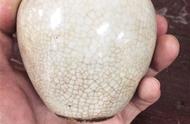
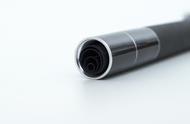
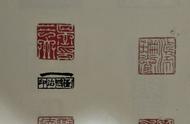



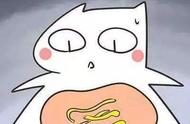

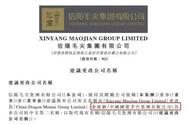

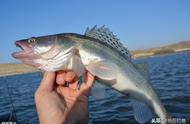
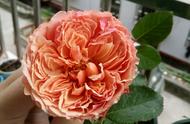



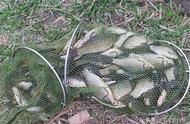
 鲁公网安备37020202370208号
鲁公网安备37020202370208号